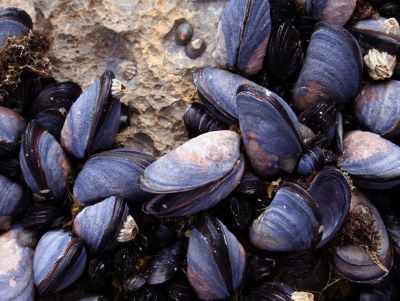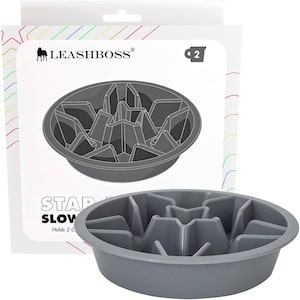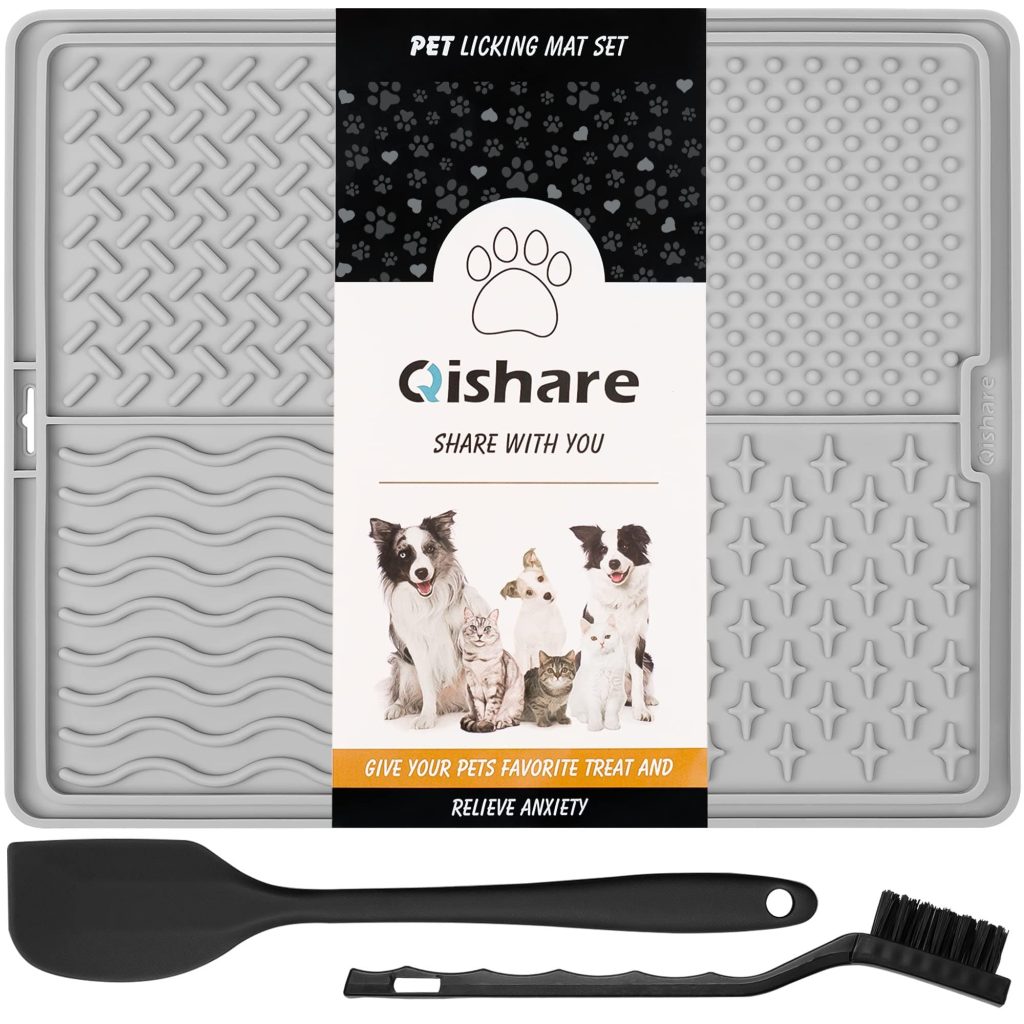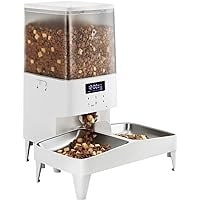The UK is renowned for its seafood, with many people enjoying the delicacy of mussels, particularly saltwater mussels. Not only do they have a delicious taste, but serve many nutritional benefits. However, have you ever wondered whether it is safe for dogs to consume this tasty food?

Generally, seafood is not included in a dog’s ideal diet. However, there’s nothing wrong with the consumption of small portions of seafood, like fish. But, what about shellfish like mussels? Can dogs eat mussels? Let’s explore!
You Might Also Like:
What Are Mussels?
Mussels are a type of shellfish, categorized under bivalves(meaning — two shells or valves that clamp together). The most commonly found species in the UK is the blue mussel, also known as the common mussel. They can easily be available from the shoreline around the UK and are produced in many parts including Scotland, Wales, Ireland and Devon.

Mussels are hard, but somewhat brittle oval-shaped shells, enclosing orange flesh inside. The shell is made up of two halves and can open down the middle to reveal the fleshy body inside. Mussels are one of the easiest baits to collect. They are found across almost all of the British and Irish coastline where there are rocks or man-made structures.
Can Dogs Eat Mussels?
Mussels have high nutritional values, ensuring several health benefits. People enjoy this seafood in almost every part of the UK and take advantage of its taste as well as its wholesomeness. But can it serve the same benefits for your canine? Just like us, can dogs eat mussels?
Mussels are a great source of protein as well as amino acids. They are an excellent source of omega-3 fatty acids. Along with this, they contain several vitamins and minerals like vitamin A, vitamin C, vitamin B12, calcium, iron, magnesium and zinc.
With such a healthy and nutritious content in one bowl, a dog will definitely benefit. So yes! Your dog can eat mussels but in moderation. Mussels are considered superfoods because it contains a variety of vitamins and minerals that not only benefit humans but dogs too.
Benefits of Mussels for Your Dog
Eating mussels can be beneficial due to the abundance of health-boosting nutrients found in this seafood. Your furry friend can enjoy this nutrient-rich food just as much as you can. Along with blue mussels, green-lipped mussels may have health benefits and specifically help with joint health.[1]

Omega-3 Fatty Acids
According to Jennifer Coates at petMD, dogs cannot make their own omega-3 fatty acids. This is why dogs have a dietary need for omega-3 fatty acids like eicosapentaenoic acid (EPA) and docosahexaenoic acid (DHA).
Mussels are an expensive source of omega-3 fatty acids to meet the requirement of a dog. It contains eicosapentaenoic acid (EPA), eicosatetraenoic acid (ETA), and docosahexaenoic acid (DHA) which are omega-3 fatty acids.
It can support various functions in a dog’s body:
- reduces inflammation in the joints(helps with conditions like arthritis)
- supports brain development and keeps cognitive function healthy
- promotes supple skin and glossy coat
- supports both kidney and heart health
- boosts the immune system
High Protein
Protein is part of a dog’s daily diet and mussels contain 24g protein per 100g serving, with all the essential amino acids. Their protein content is superior to that found in fish with fins. The protein in mussels is easy to digest, so the dog will get the full benefit of it.
Various ways in which protein in mussels can benefit the dog are:
- builds and repairs muscles
- provides energy
- forms new cells
- promotes hair growth
- keeps immune system strong
- creates essential body chemicals
Various Minerals
Mussels are a good source of minerals such as iron, magnesium, and zinc, which support overall health and well-being. So, having your pet get the vitamins and minerals from mussels is generally a better health plan than relying upon synthetic vitamins added to meals and treats.
- Iron: provides oxygen to organs, promotes energy production in cells and strengthens the immune system
- Magnesium: maintains bone and cartilage in the joints
- Zinc: boosts the immune system and the quality of skin and fur
Low in Fat and Calories
Mussels are low in fat and calories which makes them a perfect treat for dogs who are overweight or trying to manage their weight. Along with that, low calories will also ensure stable energy levels throughout the day.
The omega-3 fatty acids, protein, and minerals found in mussels can also be found in other shellfish like cockles. So you may be wondering, can dogs have cockles?
How Many Mussels to Feed a Dog?
Though mussels are nutritious, they shouldn’t be consumed by the dog in large quantities. It will only benefit the dog if consumed in moderation. The amount of intake depends on the size, weight and breed of the dog. As a guideline, no more than one or two ounces of mussel per 20 pounds of body weight, which means one to two whole mussels per 20-pound dog.
Mussels can be a healthy supplement to your dog’s diet but they shouldn’t make up more than 10% of your dog’s daily calorie intake. The remaining 90% of calories should come from their daily well-balanced diet.

Remember, not to overfeed your dog as it can lead to serious health issues. You can only feed mussels twice or thrice a week. For getting started with it, you should feed a small quantity(just one mussel) and wait for your dog’s signs of acceptance. However, if you are not sure about the amount to feed, you may consult a veterinarian and he/she can guide you effectively.
Moreover, you should avoid feeding raw mussels to your dog as it increases the risk of bacterial contamination.[2] Mussels should be cooked and prepared properly before feeding your Fido. You can steam, grill or bake the mussels. Also, make sure your dog does not shallow the shell as it can lead to a choking hazard for your pet.
While mussels provide great nutrition for dogs, other mild white fish like haddock are also good in moderation. If you’re wondering is haddock good for dogs, consider asking your vet before feeding them.
FAQs
Can small dogs eat mussels?
Yes! Mussels are an excellent source of protein, omega-3 fatty acids, and essential minerals like zinc, iron, and manganese. Protein helps your pup build strong and healthy muscles and overall including a small portion of mussels in their diet will greatly benefit the pup.
Can I give my dog cooked mussels?
Cooked mussels are the best for your dog rather than feeding raw ones. Mussels should always be cooked and properly prepared before feeding to your dog to avoid bacterial contamination.
Are dogs allergic to mussels?
Mussels spoil quickly, so they must be cooked when fresh. Mussels may trigger allergic reactions in dogs with food allergies or food intolerances. Also, mussels are prone to accumulate many toxins. Symptoms include stomach upset, fever, vomiting, hair loss, itchy skin, and diarrhoea.
Overview
Can dogs eat mussels? Why not! As a pet parent feeding your pup healthy and nutritious remains your ultimate goal. And surprisingly, with feeding mussels comes a lot of other benefits for your Fido. They are a great source of protein, omega-3 fatty acids and many other vitamins and minerals, which can boost your dog’s immunity.
Instead of feeding just mussels, you can also add it as a supplement to your dog’s current diet and serve your dog as a delicious side dish. However, always control the portion you serve. Don’t overfeed your dog. In case of doubt, always contact your local vet. Happy feeding!
Along with mussels, many dog owners wonder about other human foods like black pudding. Check our guide on can dogs eat black pudding for more information.
References:
- Dacvim, D. E. L. D. M. (2017, December 5). Can joint diets help my dog’s pain? Clinical Nutrition Service at Cummings School.
- Seafood safety. (1991). In National Academies Press eBooks.






